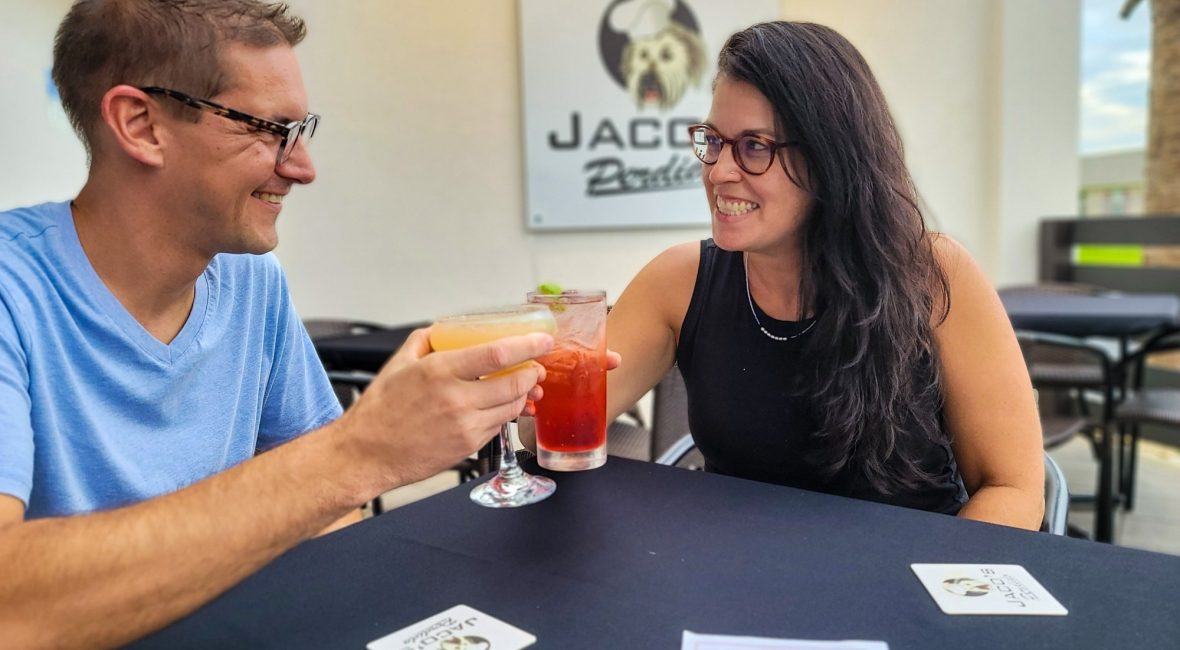
If you know me, you know I am very competitive. The possibility of beating a perceived challenge is pure motivation. So today is our 21st wedding anniversary and — DRUMROLL PLEASE — according to the statistics, Steve and I are marriage champions! The average American wedding ends in divorce in a mere 8.2 years (or weirdly, 12.2 if you’re a New Yorker).
All joking aside, this dismal statistic causes a swell of sorrow. We cannot imagine what our lives would be if we had checked out at year 8; we would have missed the most outstanding parts! If I sound overly optimistic or traditional, it’s only because holding on to this relationship has enriched the quality of life. That said, we had a fight this summer that felt monumental. It was immensely frustrating and took a solid week to negotiate. I found myself wishing that we were all much franker about what it takes to remain married — joyfully, without killing each other. For this reason, I am highlighting 5 traits that make our marriage robust for two decades and counting.
We make decisions together. This habit is the opposite of the submission culture preached in the church of my youth. (Females generally contributed more without benefiting from recognition and equal power.) At every juncture, we aim to make choices only after weighing what matters to the other person, even when their wishes can’t be accommodated. That each of us equally strives to consider the other person first is love in its most basic form. It makes our relationship a safe place for both parties.
We understand the seasons of life and practice compassion. This year Steve’s mom died and we were struck by a current of grief. To protect our relationship during this season, we practice gentleness towards our spouse, accept mercy when we are struggling, and slow down for emotional and spiritual rest. Other rough periods we have weathered are leaving a toxic faith community, moving out of state, and illness. Our marriage is valuable because we are teammates who help one another thrive even under the pressures of stress, grief, and weakness.
We make time for a good fight. These fights are like controlled burns — crucial to the health of our marriage. When a negative issue comes up, we absolutely deal with it. We never employ name-calling, silent treatment, or threats. It’s harder for me to resist passive-aggressive moves because it gets a reaction from my quieter husband. I have learned that patience draws him out better than sarcasm.
If that discussion grows too heated to resolve, we learned the hard way to table it. This pause gives us time to summarize our feelings and needs better. During that important fight this summer, I took off for a walk. After a few blocks, I was calm enough to pray for one minute. As I walked on in silence, God highlighted for me characteristics of my childhood that made this issue such a hot button. When we returned to the discussion, I could clearly express emotions and listen as Steve detailed his intentions. The quality of our connection skyrockets after these conversations.
We maintain this family as our first priority. This mindset has not always been the case; we used to put the church first with our time and money. Then some catastrophic events in a (previous) faith community acted as a catalyst, inspiring us to halt everything and dream about what our own family legacy would be. What were the strongest practices for creating a connected family and a marriage that was fulfilling? We finally set boundaries to foster our family vision. The mutual commitment to this family gives us the backbone to say yes and no to other people as needed. This induces a sense of security and peace between us.
We do not rely on one another for fulfillment. Happiness is self-made. Steve and I admire one another for setting individual goals and mapping the path to crush them. It could be tempting for me as a homeschool mom to be absorbed by my family and overlook this. But cheering each other on is motivation to keep dreaming and creating our own next goals. This fosters personal and professional development, introduces new friends into our lives, and breathes fresh life into the relationship.
The effect is not just a trophy for marriage longevity. Marriage for marriage’s sake is not the goal. Are you engaged or newly married? I encourage you to build deeper connections with friends whose relationships you admire. If you’ve been married longer, join me in being more vocal about what works. To any struggling married friends, I hope this targeted any pain points and jumpstarts an honest conversation with your spouse or licensed counselor. Our relationship is a source of joy, it’s a place of personal growth and it’s a safe refuge for each person. We believe that it can be that for you as well!










Leave a Comment